All images courtesy of Page Hamilton
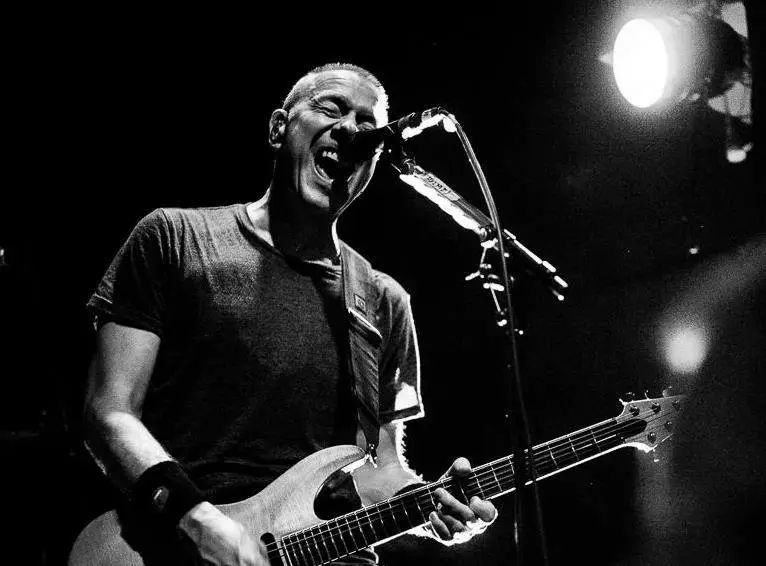
Today, I’ve got Page Hamilton, the leader and founder of the highly influential Alternative Metal band Helmet. A band that has spent the last several decades forging a path that is entirely their own and truly singular to their sonic vision.
Helmet have long been stalwarts of the NYC Metal scene. Their unique take on Metal has influenced legions of bands over the last 30+ years. It was a pleasure to chat with Page about, among other things, his early roots in music, the beginnings of Helmet, the breakup and subsequent reformation of the band, his opinions on the scene today, and much more.
If you would like to learn more about Page Hamilton, you can head over to his website and dig into his latest goings-on. If you would like to learn more about Helmet, you can head over to their website as well. Cheers.
Page:
Thank you for taking the time to speak with us. This last year has been rough. How are you holding up?
Page:
Thanks for asking. I’m hangin’ in there.
Andrew:
Tell us about your backstory. What was your musical gateway?
Page:
I could write a book, so I’ll try the cliff notes version. Like many career musicians, I’ve had many influences, but my cousins (who were older) playing us The Beatles, Monkeys, KISS Jim Croce, and America was significant. I also experienced car sickness as a kid while riding in the back of the family station wagon through the winding mountain roads of my home state, Oregon. “A Horse With No Name” came on the radio (1972?), and I went inside the music; this magical thing happened, my car sickness went away, and I was hooked. Amazing song.
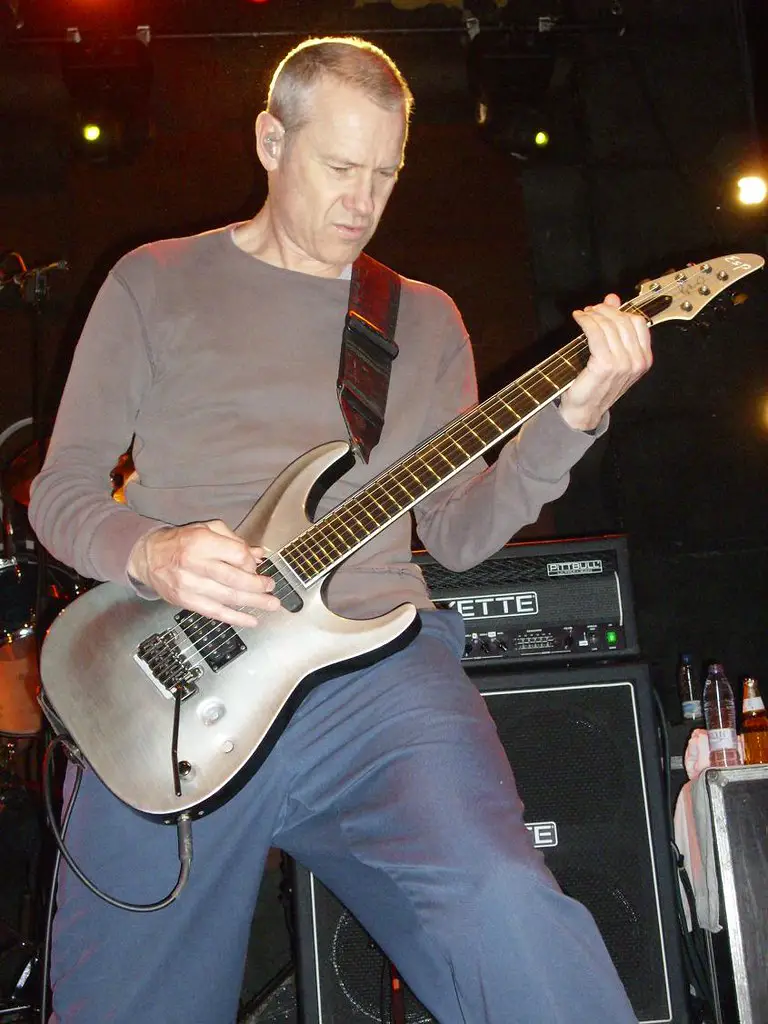
Andrew:
Tell us the story of Helmet. How did the band form? It’s been through many lineup changes. While it’s been steady in recent years, why do you feel there has been so much turnover.
Page:
The turnover is part of maintaining a band. People move on, or we move on. I had finished a tour with Band of Susans and decided to start my own band after songs I’d written were turned down for the Love Agenda album. I had a dear friend who hired me at Rockpool to work the mailroom and write reviews. She paid for an ad in the Village Voice, so I found Stonier. My pal Peter joined, and we auditioned Henry next. We just knew…I knew right away with John and Henry they were the right guys.
Andrew:
Helmet is often labeled as “Alternative Metal” and “Noise Rock.” What are your thoughts on those labels? The band seems to almost eschew genres. Is that intentional, or simply what comes naturally?
Page:
When we formed, we loved noisy music, but we also loved heavy music and music that grooved. The 4 of us brought different influences, but as a downtown NYC band, the noise was a reflection of our environment and the influence of other downtown bands. That said, throughout these 32 years, we’ve maintained our own sound, Alternative, Metal, Noise, Rock, Industrial Metal, Post-Hardcore, etc; I guess some listeners need to narrow things down to decide whether it’s for them?
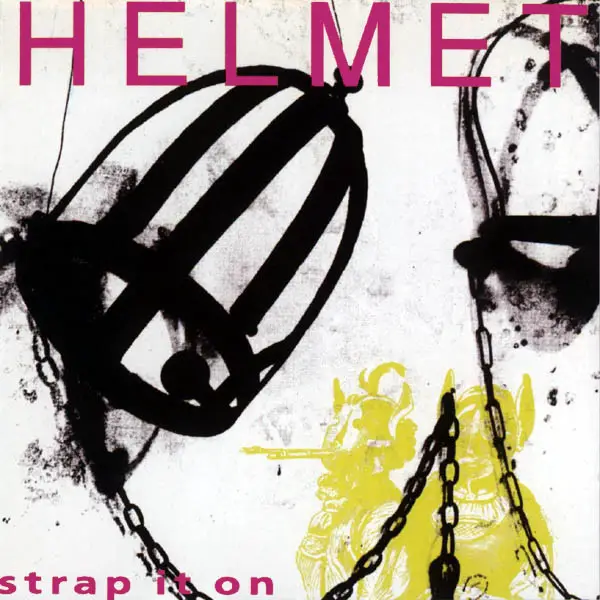
Andrew:
Let’s talk about Strap It On. What are your thoughts on the band’s debut? Looking back, do you feel it’s held up?
Page:
I do. In a lot of ways, it’s still the best album. [Laughs]. The more you write, sing, play, tour, record, etc., the better you get. There’s something about the raw energy of a first album you can’t recapture. Not like you try to look backward, you can’t. I have fond memories from those early days and love playing those songs live.
Andrew:
The trio of albums you released for Interscope records, Meantime, Betty and Aftertaste were very successful and well-received. What was it about those records that seemed to resonate so well with the general public and critics alike?
Page:
I’m not sure, but we appreciate that Helmet listeners have stayed with us. I think because we stayed the course so to speak. As I mentioned in the last question, you move forward making music. We didn’t sit around thinking about the response, “Here’s a hit.” That’s a perfectly valid way to work; it’s just not our way. We felt confident that what we were doing was good and stood out from other NYC bands. Every time I sit down to write or step into a studio or on stage, I feel the same excitement and enthusiasm. I still get nervous, and I’m able to escape kinda and get lost in the music. I don’t know if that makes sense, but it’s the way it is. As amazing as it has been to work with incredible musicians from Elliot Goldenthal to Bowie, Ben Neill to Teddy Abram, there’s nothing like Helmet for me.

Andrew:
Helmet broke up in 1998 but reformed in 2004. What led to the breakup and subsequent reformation 6 years later?
Page:
The breakup question would be for John and Henry as they chose to leave the band. My guess is 10 years was long enough for them, and they wanted to explore their own musical ideas. They are amazing musicians and an important part of the band’s sound, but I wrote the songs and was the producer.
The decision to get Helmet going again was influenced by Jimmy Lovine who called me one day and asked me to make a new Helmet album. I’d been playing with Johnny Tempest and Blasko (from Rob Zombie’s band) after moving to LA. The drop-tuned Rock music I write will always sound like Helmet sooo…[Laughs]. I love this musical vocabulary.
Andrew:
The group’s most recent record was Dead to the World, released in 2016. Tell us the backstory regarding this record. What was the recording process like?
Page:
We recorded with old pals Toshi Kasai, Mark Renk, and Jay Baumgardner (who mixed Size Matters and DTTW). I think I’d been writing for a while and had a lineup I was really excited to record with. We worked at the Melvins space they share with Toshi. It’s no-frills, and Toshi is amazing. The guys all did amazing work!
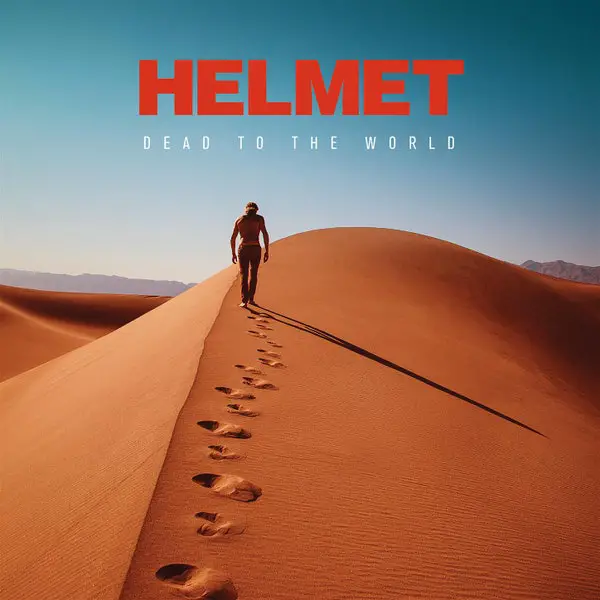
Andrew:
With all this downtime we are experiencing, can we hope for some new music from Helmet soon?
Page:
We have a box set of 7” cover songs coming out as well as a live album, a really raw live album from old tapes we transferred. We haven’t made plans for the next album yet, but I’ve started some songs.
Andrew:
Let’s talk about production a bit. Do you self-produce these days, or do you have outside producers/engineers weigh in?
Page:
I’ve always produced Helmet albums though we’ve worked with great co-producers like Wharton Tiers, Butch Vig, Dave Sardy, Mark Renk, etc. Toshi has been important during the recording of the last 2 albums, Seeing Eye Dog and DTTW. I generally do my overdubs without bandmates, just the engine, whether Wharton or Toshi, told technically be co-producing.
With Butch and Sardy, they had engineers…T-Ray as well…forgot about T-Ray. His thing is so different that it was kinda difficult for him to contribute much. I wasn’t ready to let anyone else in yet…Lovine/Interscope and our manager at the time asked me, “Who’s producing the next album?” This was after Meantime had gone gold and got a Grammy nomination. I said, “I thought we did a pretty good job.” Ah, The music biz…I don’t regret letting someone else into our world; we learned a lot, and Betty holds up.
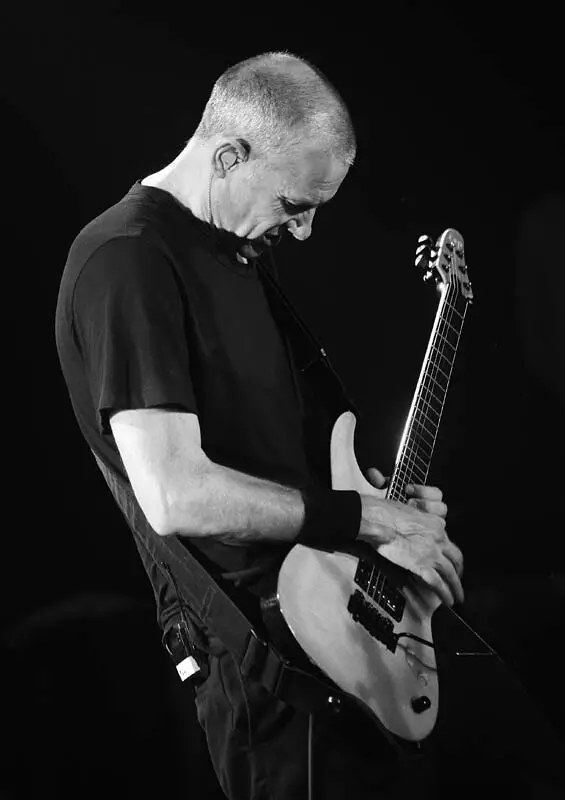
Andrew:
As a working band, a huge part of what you do is playing live. But as we know, COVID has disallowed it. What do you miss most about playing live? Do you think the live music industry will recover?
Page:
Whew, it has been so difficult. I miss every single thing about playing live. The songs, singing, playing, loud guitar, my zone on stage, pedals and amps and guitars, my band mates, our crew, our friends around the world, the travel, pre-show, post-show, hotels rooms, Guinness in Dublin, espresso in Bologna, swimming in Byron Bay, eating by the boats in Marseille and drinking in Aix…everything. I do think live music will recover. People need it.
Andrew:
For a long time, Heavy Metal and Hard Rock were buried by the mainstream. I supposed it still is. In your opinion, why is Metal and Hard Rock continually persecuted, overlooked, and looked down upon? Do you feel the tide is turning at all in that regard?
Page:
Lame, right? I know someone is a mediocre, limited, less than musical musician if they look down on AC/DC. The tutti section of a massive orchestral piece can be really loud and jarring, just like loud guitars and drums in a Metal song. I need that, but some people can’t hear past what they think is just aggression. It is passion, the need to express something NO OTHER MUSIC can express. As Iggy said, I paraphrase, “Loud guitar changes your body chemistry. It’s an amazing feeling, physical, emotional, spiritual.” I listen to everything from Thelonious Monk to Zep to Marley to Beethoven to Vaughan Williams and play everything from Lush Life, Giant Steps, and Jazz standards to Beatles songs and have played with 80-piece orchestras and Jazz trios, a Drum ‘N’ Bass group, Branca’s Symphony for 100 electric guitars and on and on.
Those people who look down on heavy music can shove it. [Laughs]. anyway, not my problem, their loss, etc. AC/DC RULES!
Check this: https://www.science20.com/news/smart_kids_listen_to_heavy_metal
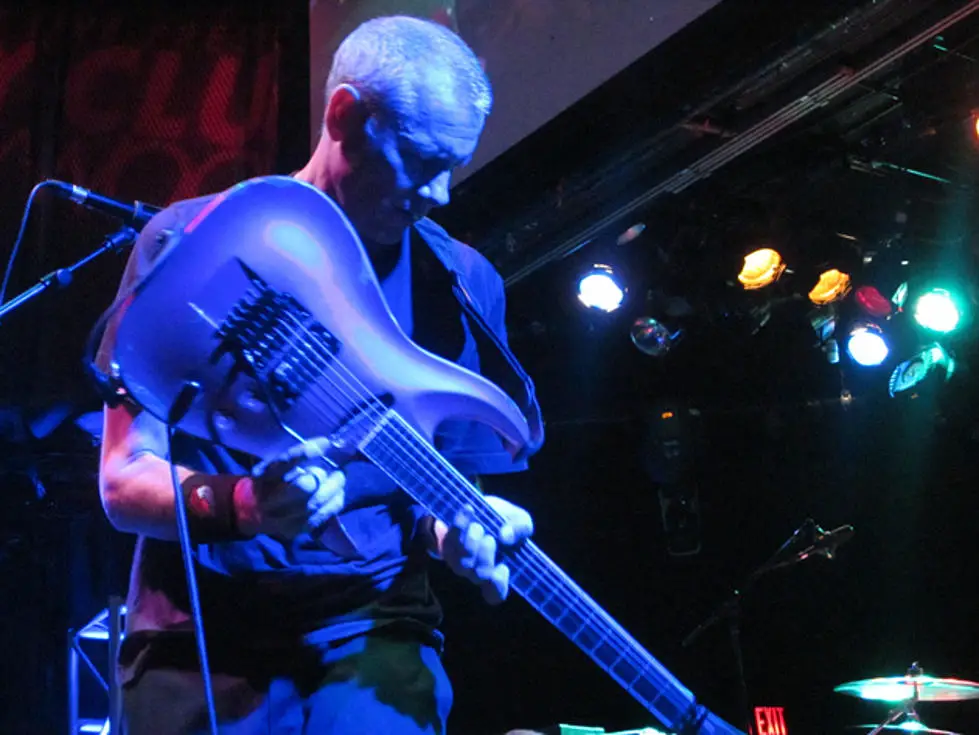
Andrew:
On the subject of Heavy Metal and Hard Rock, in your opinion, who are some of the most underrated bands and artists from the genre?
Page:
Thin Lizzy is waaaaay underrated!
Andrew:
Let’s talk about the state of music, in general, a bit. I’ve learned over time that streaming services barely pay or don’t pay artists at all. What are your thoughts on that? What can we do as fans to help support the artists we love more?
Page:
I’m not sure. Go to shows and but t-shirts? Watch our stuff on YouTube. Leave our music on a loop on Spotify 24/7? [Laughs]. After gaining [I think] a 45% increase over the next 5 years, Spotify et al. are fighting us. Our union. Their bazillions are not enough…music biz sucks, but they can’t take what we love away from us, I keep it about the music, and my heroes had it worse.

Andrew:
In the world we live in today, we are more or less dominated by big business and the never-ending barrage of social media. How has this affected music as an art form? Is an artist’s ability to get their music out there hindered by all this, or helped?
Page:
I’m the world’s lamest IG person..social media, etc. I think any time “content” is the most important aspect of an artist’s day, profile, or whatever; the music will suffer..it took me probably 6 weeks to finish “Unsung.” If I were worried about spoon-feeding fans every day, it wouldn’t have happened.
Andrew:
Are you into records? Tapes? CDs? Digital? Where do you like to shop for music?
Page:
I have 1000 records in NYC that I’m finally shipping to LA, but for the last 10 years, I’ve used iTunes. Records are way cooler.
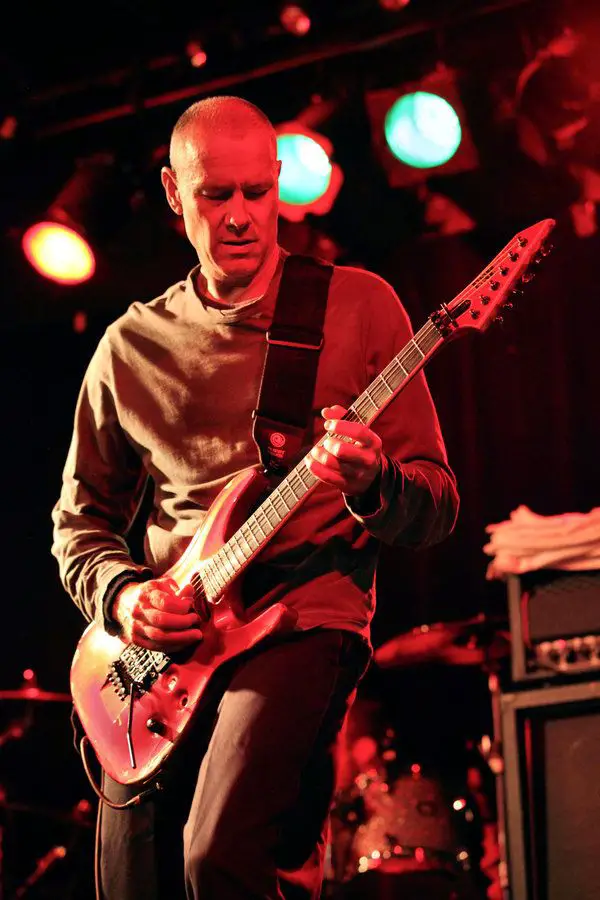
Andrew:
What are a few albums that mean the most to you, and why?
Page:
–Miles Smiles. It sounds like nothing before or since.
–A Love Supreme. An incredibly powerful, spiritual album.
–Powerage. This is my favorite AC/DC album. Rock perfection.
–Led Zeppelin 4. It made me wanna be a guitarist, SO scary and powerful.
–Jim Hall Live. It still makes me wanna be a guitarist: great improvisation and spontaneous composition.
–Neville Marriner Mozart Late Symphonies. In #40 G minor, how? What a way to start a symphony!
Andrew:
Last question. How do artists find their footing these days? What advice would you have for younger artists?
Page:
Always be honest. Why do you (not you, why does one) love music? Because of the internet? Instagram? The Music biz? Nope. Do you want to be a famous schmuck or a musician? Music will never ever let you down. It is a universal language we try to understand, it connects us, and we understand some things about it, but nobody understands everything about it.
It has been here and will always be here for us as inspiration, and there is always something new and cool and amazing to discover and dive into. I’m 60, and I know I’ll run out of life before I run out of music and musical inspiration. Do it for the right reasons.
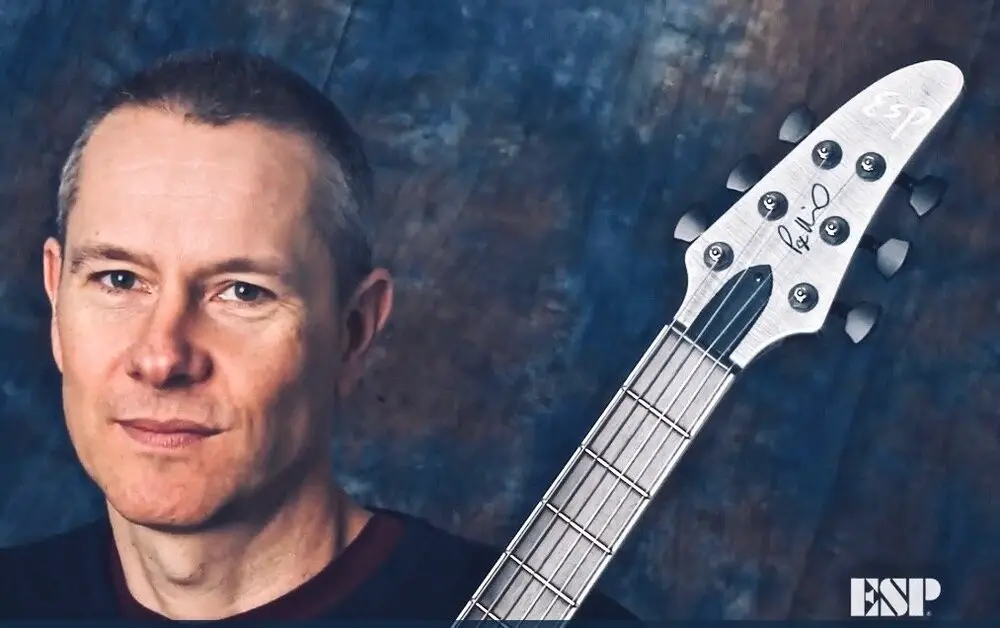
Interested in learning more about the work of Helmet? Check out the link below:
Dig this interview? Check out the full archives of Vinyl Writer Interviews, by Andrew Daly, here: www.vinylwritermusic.com/interview
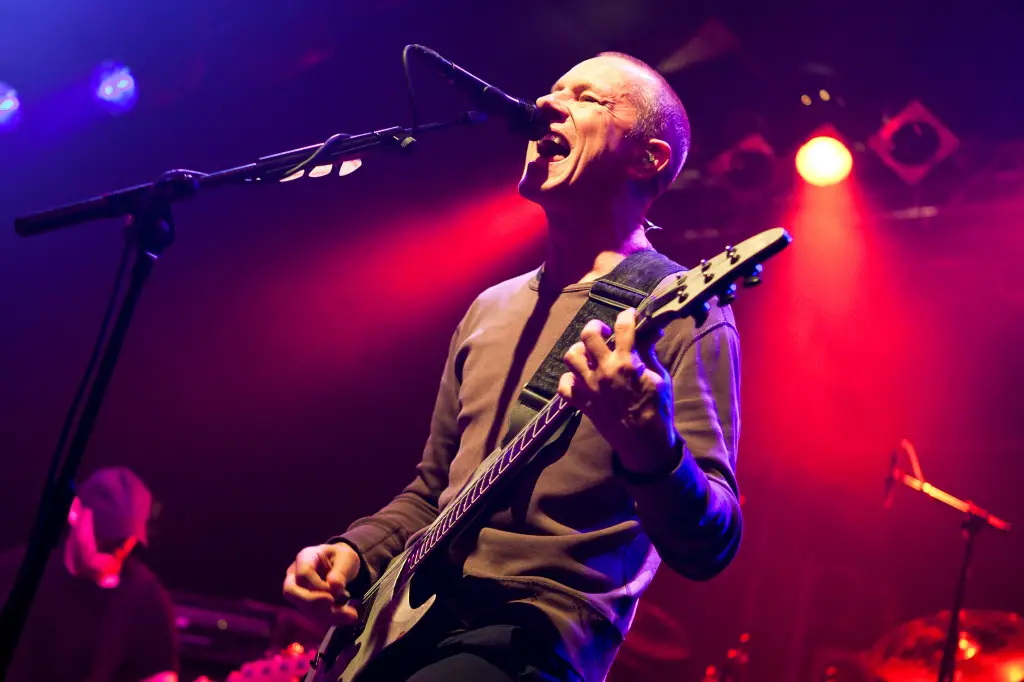




Leave a Reply